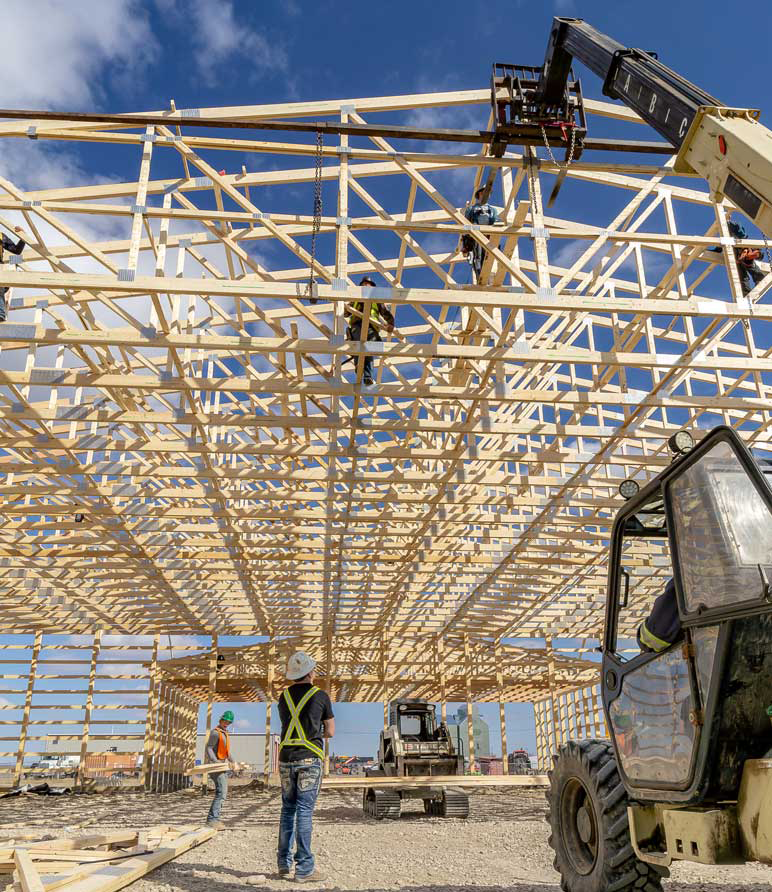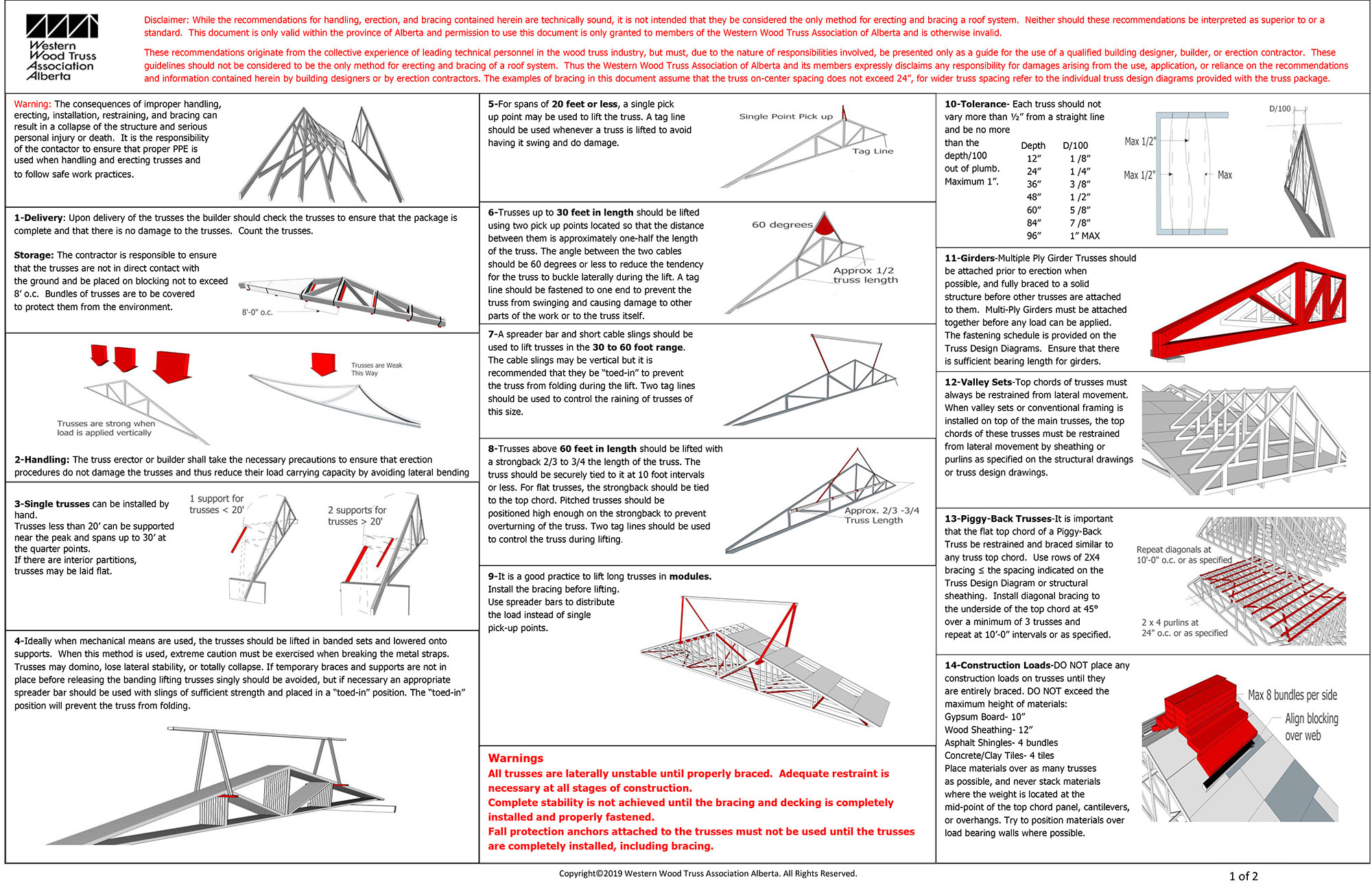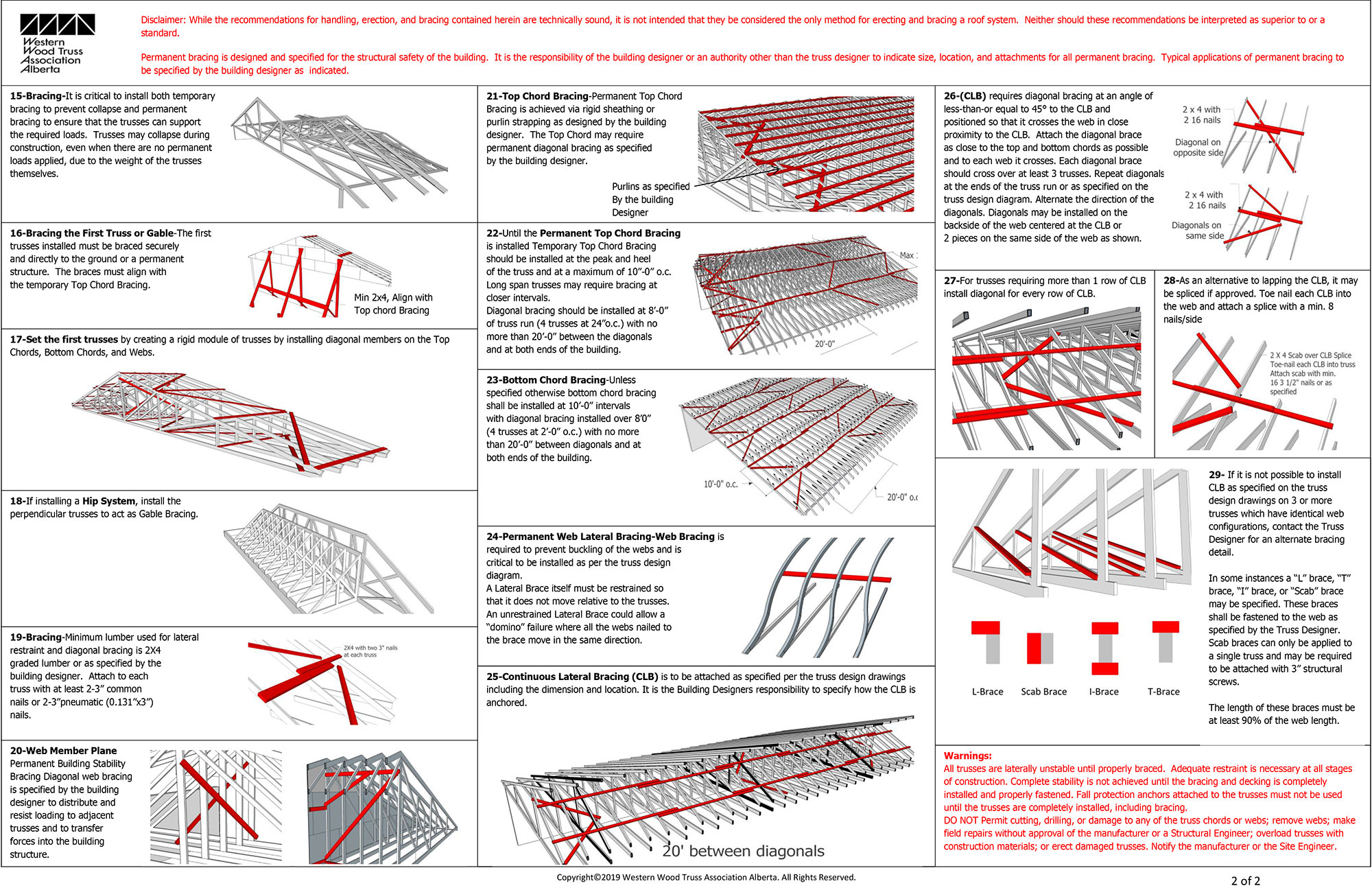
THE IMPORTANCE OF BRACING WOOD TRUSSES
THE FOLLOWING INFORMATION IS MEANT TO REMIND AND EDUCATE OUR CUSTOMERS ON PROPER WOOD BRACING SO THAT BEST PRACTICES ARE ALWAYS ADHERED TO. WE ALL WANT TO DO OUR PART TO ENSURE THAT EVERY STRUCTURE WHERE WOOD TRUSSES ARE USED ARE BUILT AS STABLE AND SAFE AS POSSIBLE.

WHY IS BRACING NECESSARY?
Wood trusses are designed to carry high loads when in place and properly braced. If you are installing trusses and do not have a good understanding of how to both temporarily and permanently brace the trusses you are putting your safety and the safety of the structure in jeopardy.
It is essential that all three planes of the trusses: the top chord, bottom chord, and webs of the trusses are properly braced during construction with adequate diagonal and gable bracing to restrain the lateral bracing.
Please Watch the Following Video for WWTA Truss Bracing Recommendations
UNDERSTANDING TRUSS BRACING RESPONSIBILITIES
Temporary bracing is a means and methods issue and is the responsibility of the Contractor in accordance with the construction documents or the truss submittal package.
Permanent Bracing which includes the permanent lateral restraint and diagonal bracing applied by the truss design engineer to the truss web member plane, is the overall responsibility of the Building Designer.
The Truss Manufacturer will always follow the best practice of providing JobSite Packages with every truss order that includes accurate information regarding handling, installing, restraining and bracing of components.
HELPFUL RESOURCES
ON BRACING
WWTA ASSOCIATION HANDLING, ERECTION & BRACING INSTRUCTIONS




Please complete this short checklist to ensure you have been provided and understand the above information for Bracing Wood Trusses:
